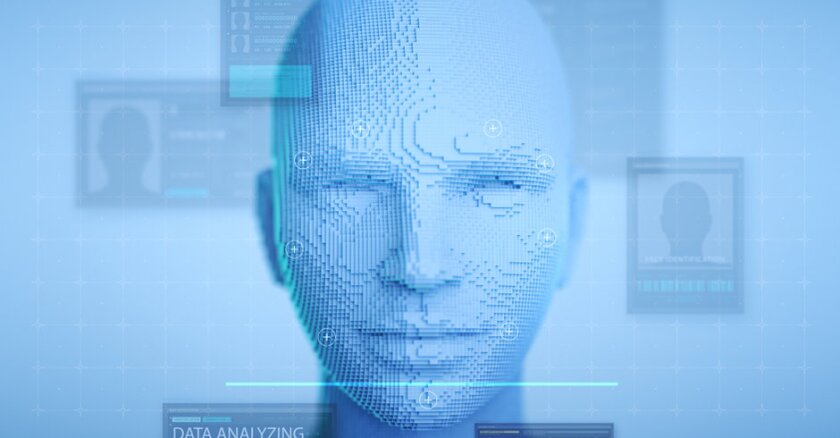The City Council has unanimously approved the partnership with the Pinellas County Sheriff’s Office, which, according to data from the FBI, maintains a database that draws from over 38 million photos of driver’s license photos, mugshots and images taken by or provided to law enforcement from security footage.
Most major law enforcement agencies in South Florida currently use facial recognition technology. “Essentially, this system is a face or biometric comparison tool used to assist in obtaining investigative leads by identifying persons of interest to law enforcement,” according to a city memo, which added it wouldn’t cost the city any money to participate.
The use of facial recognition technology has drawn scrutiny from civil liberties advocates and constitutional law experts, who have long warned about the privacy concerns, as well as the potential for mistaken identities and abuse of the technology.
The partnership was set to take effect in June. Boca Raton police say they first are reviewing their agency’s policy on use of facial recognition technology, noting how there are limitations to how the program is used. That policy must be finalized and submitted to the Pinellas County Sheriff’s Office within 90 days, under the terms of the partnership.
“A new user agreement is in the process of being executed with Pinellas County,” according to a statement from the police department. “In light of this we are reviewing our policy.”
Boca Raton Police’s current policy for using facial recognition technology — which was last updated in September of 2020 — says, in part, that it’s not a real-time surveillance system. It says that the images in the database are “strictly” obtained from jail booking photos and driver’s license photos, and also that an identification through facial recognition requires additional investigation.
The department’s pre-existing policy does not have a provision that prohibited searches of people engaged in peaceful protests. But the department, in a recent statement, called attention to the terms of the new agreement: “Under the current and new user agreement, we cannot use personal information to identify individuals engaged in political, religious, or other protected free speech. Regarding other searches that have been done, we do not have access to search the database. Pinellas County maintains the database.”
How is the technology used?
Pinellas County’s database was started two decades ago, and the use of such technology has grown among local and federal law enforcement agencies.
In 2015, there were 230 local agencies in Florida participating in the program. Last year, it was 269, plus an additional 20 federal agencies,including the FBI and ICE, according to previous reporting from the Sun Sentinel. The number of participating agencies has fluctuated.
Most recently, the Pinellas County Sheriff’s Office said 263 agencies have access to it.
Drawing concerns
There are no federal regulations on the use of facial recognition, and Chad Marlow, a senior policy counsel at the American Civil Liberties Union, says that has led to a “tale of two responses.”
A number of state and local governments, as well as private companies, have taken “strong actions to either sharply restrict or completely ban the use of facial recognition technologies in light of the overwhelming evidence of the problems with it,” he said.
Concern over the lack of oversight has led more than 20 municipalities fromSan Francisco to Jackson, Miss., to ban its use by governments and police.
Tech companies such asAmazon and Microsoft have announced moratoriums on selling their facial recognition software to law enforcement agencies.
Marlow raised concerns about the broader use of the technology, and the problems that could pose. “It can be turned on peaceful protesters, which can then have a chilling effect of discouraging people from exercising their First Amendment right to protest because they don’t want to end up on a police watchlist, which absolutely does happen.”
Last year, the Sun Sentinel and the Pulitzer Center did two investigations into local law enforcement’s use of facial recognition technology, finding that it wasused on peaceful protesters anddisproportionately targeted people of color. And a2016 report by the Tampa Bay Times on the technology warned that the database could produce faulty results, was “ripe for misuse and abuse” and had little to no oversight.
Boca Raton police and at least two other agencies — the Broward Sheriff’s Office and Fort Lauderdale police department — had submitted more than a dozen images that referenced protests or protesters for facial recognition, but no crimes, according to a June 2021 report from the Sun Sentinel.
At the time, Boca Raton police said they were responding to social media posts, which police said called for rioting or looting at the Town Center Mall. The protests in Boca turned out peaceful, but police said they didn’t get any leads from running the social media photos through the database. “From our research, it doesn’t appear there were any matches,” Jessica Desir, Boca Raton police spokesperson, said last year.
Under the new agreement, the Pinellas County Sheriff’s Office “will grant access and make information available” to the police to “perform automated facial recognition searches and face image comparisons through the Face Analysis Comparison & Examination System Next (FACESNXT).”
As the program has grown, the Pinellas County Sheriff’s Office said it has implemented safeguards.
“All agencies requesting access are required to have a facial recognition use policy established,” Pinellas County Sheriff’s Sgt. Amanda Sinni said. “Audits are conducted on a regular basis that require substantiation for legitimate law enforcement use and audit reports are sent to partner agencies for their review.”
© 2022 South Florida Sun-Sentinel. Distributed by Tribune Content Agency, LLC.














